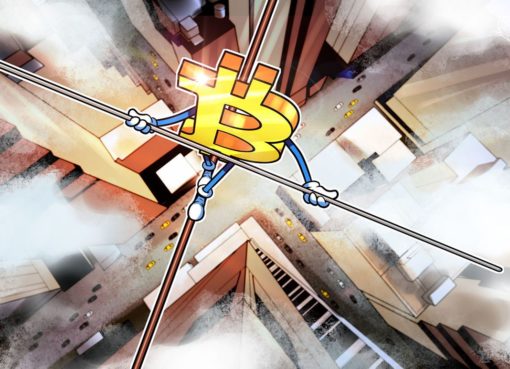The metaverse, also known as the virtual universe, is a concept that has been around for decades in science fiction literature but has recently gained traction as technology has advanced to make it a more realistic possibility. Essentially, the metaverse is a virtual world that is fully immersive and interactive, and can be accessed by users through various devices such as VR headsets or augmented reality glasses.
This blog holds the concept of the metaverse, a virtual world that is fully immersive and interactive, and the potential it holds for revolutionizing the way we communicate and interact with each other. The blog also examines the potential of the metaverse and the importance of responsible and ethical development.
History of Metaverse
The term “metaverse” was first coined in Neal Stephenson’s 1992 science fiction novel “Snow Crash,” where he described it as a virtual world where people could interact in real-time. In the following years, the concept of the metaverse appeared in several other science fiction novels, comics and movies. The advancement of technology in the 21st century, specifically in the field of virtual reality and augmented reality, has brought in many metaverse business ideas that are more tangible and realistic, leading to increased research and development in the field. Companies, startups, and researchers have begun to explore the potential of the metaverse and its applications in various industries such as gaming, social interaction, commerce, and education.
In recent years, blockchain technology has also played a significant role in the development of the metaverse. Blockchain-based platforms such as Ethereum have enabled the creation of decentralized applications, which could be used to build and power virtual worlds in the metaverse. Moreover, the gaming industry has been a pioneer in metaverse game development, with the advent of massively multiplayer online games (MMOs) like World of Warcraft and Second Life, which have laid the foundation for the metaverse and its potential.
Exploring The Role Of Metaverse
In Connecting People
One of the key features of the metaverse is its ability to connect people from all over the world in a shared virtual space. This has the potential to revolutionize the way we communicate and interact with each other and could lead to new forms of social interaction and community building. In a metaverse, users would be able to interact with each other in real time, regardless of their physical location, and would be able to participate in a wide range of activities such as gaming, shopping, and even working.
In Adding Up Revenue
Another important aspect of the metaverse is its ability to create new forms of revenue streams for businesses. Companies would be able to establish virtual storefronts within the metaverse, which would allow them to reach a global audience and sell their products and services to a much larger market. Additionally, businesses would be able to use the metaverse as a platform for advertising and marketing, which would allow them to target specific demographics and gain valuable insights into consumer behavior.
In Educating People
The metaverse also has the potential to revolutionize the way we learn and educate. In a virtual world, students would be able to access a wealth of educational resources, including interactive simulations and virtual classrooms. This would allow them to learn in a more engaging and interactive way and could lead to improved learning outcomes. Additionally, the metaverse could be used as a platform for lifelong learning, allowing individuals to continue to educate themselves and improve their skills throughout their lives.
The potential for the metaverse is vast and far-reaching, and it will likely have a significant impact on the future of the digital space. However, there are also some concerns about the potential negative consequences of the metaverse. These include concerns about the impact on privacy, security, and mental health. It’s important for the development of the metaverse to be done responsibly and with the input of experts in these fields.
Aspects of Metaverse
One of the most exciting aspects of the metaverse is the potential for it to become a platform for innovation and creativity. In a virtual world, users would be able to build and create anything they can imagine, without the constraints of the physical world. This could lead to new forms of art, music, and storytelling, and could open up new opportunities for creators and artists.
The metaverse also has the potential to become a new economy, with its own virtual currency and marketplaces. This would allow users to buy and sell virtual goods and services and could lead to new forms of entrepreneurship and business models. For example, users could create and sell virtual items like clothing, furniture, or even virtual real estate. Additionally, the metaverse could become a platform for crowdfunding and could allow users to raise money for projects and ventures in a new and innovative way.
Real-Time Potential Of Metaverse
Another potential benefit of the metaverse is its ability to enhance human productivity. In a virtual world, users would be able to work and collaborate with others in a more efficient and effective way. For example, virtual meetings and conferences could become more immersive and engaging and could reduce the need for travel. Additionally, the metaverse could be used as a platform for remote work and telecommuting, which would allow individuals to work from anywhere in the world.
Impacts of Metaverse
However, there are also some potential downsides to the metaverse that need to be considered. One of the main concerns is the impact on privacy and security. In a virtual world, personal data and information could be easily collected, tracked, and used for targeted advertising and manipulation. It’s important for developers to ensure that the metaverse is designed with robust privacy and security measures in place to protect users’ personal data.
Another concern is the potential impact on mental health. Spending too much time in a virtual world could lead to a disconnection from the physical world and real-life relationships. It’s important for the metaverse to be designed in a way that encourages healthy balance and that users are aware of the potential risks and take steps to mitigate them.
Blockchain Brings Solution To Metaverse
Blockchain technology has the potential to play a significant role in the development and operation of the Metaverse, a virtual world that is decentralized and accessible to anyone with an internet connection. The metaverse sometimes referred to as the “Internet of Worlds,” is a concept that has been around for decades, but has recently gained renewed interest due to advancements in technology and increased interest in virtual reality and augmented reality.
One of the key benefits of blockchain technology is its ability to provide a secure and transparent way to record transactions and manage digital assets. In the context of the metaverse, this could be used to create virtual economies, where users can buy, sell, and trade virtual goods and services using cryptocurrency. This would allow for a more decentralized and democratic economy, as anyone could participate without the need for a central authority.
Potential of Blockchain In Metaverse
Another potential use case for blockchain in the metaverse is in the creation and management of virtual identities. Blockchain-based digital wallets could be used to store and manage virtual identities, which would allow users to have more control over their personal information and reduce the risk of identity theft. Additionally, blockchain-based smart contracts could be used to automate certain actions in the metaverse, such as the transfer of virtual assets or the execution of certain tasks within a virtual world.
One of the most exciting potential use cases for blockchain in the metaverse is the creation of decentralized virtual worlds. Decentralized virtual worlds would be owned and operated by a community of users, rather than a single company or organization. This would allow for greater freedom and creativity within the virtual world, as users would have more control over the rules and regulations of the world. Additionally, it would also make it more difficult for governments and other organizations to censor or control the virtual world.
However, it’s not all sunshine and rainbows. There are some challenges that will need to be addressed in order for blockchain to play a meaningful role in the metaverse. For example, scalability is a major concern, as the current blockchain infrastructure is not able to handle the large number of transactions that would be required in a virtual world with millions of users. Additionally, there is also the issue of interoperability, as different blockchain platforms will need to be able to communicate with each other in order for the metaverse to function effectively.
End Of Line
Finally, the metaverse also poses a risk of a digital divide, creating a class of individuals who have access to the metaverse and those who don’t. This could be due to the cost of the devices and access to the internet and it’s important to ensure that everyone has access to the metaverse and its benefits.
In conclusion, the metaverse has the potential to be a powerful platform for innovation, creativity, and productivity. It could create new opportunities for entrepreneurs and artists and could revolutionize the way we work and learn. However, it’s important to consider the potential downsides and ensure that the metaverse is developed responsibly and ethically. This includes ensuring users’ privacy, security, and mental health are protected, and that everyone has access to the metaverse and its benefits. And if you are looking to develop metaverse projects you may connect with the top metaverse development company and unveil your ideas in the digital space.




